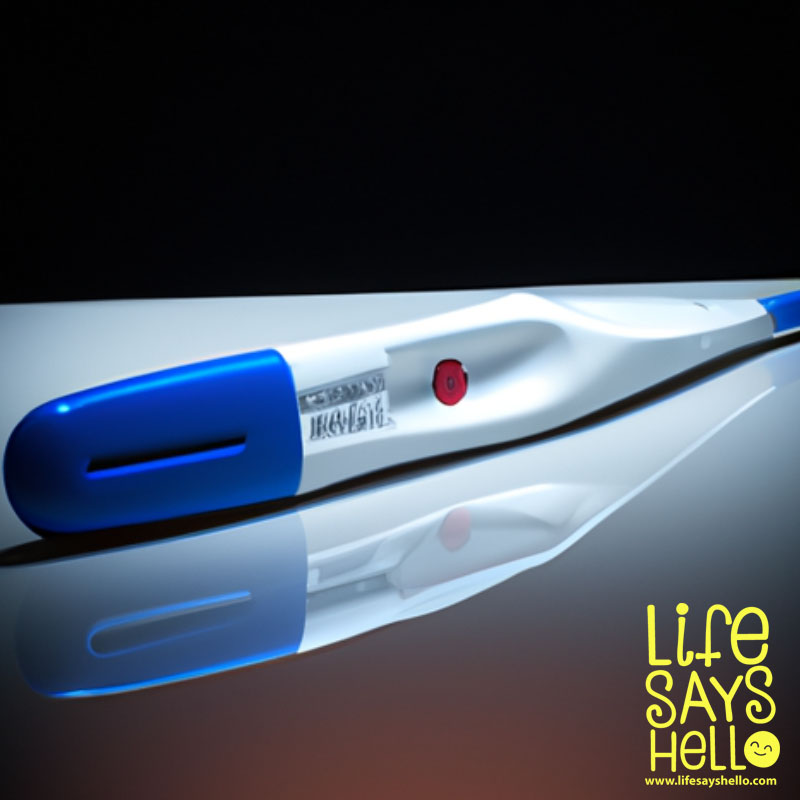Identifying Symptoms of Ectopic Pregnancy: A Complete Guide for Early Detection and Better Outcomes

Ectopic pregnancy is a term you might have heard, but what does it really mean and why is it important to know its symptoms?
In this comprehensive guide, we delve into all aspects of ectopic pregnancy to empower you with the information needed to detect symptoms early, understand your treatment options, and take proactive measures to maintain your reproductive health.
Introduction
Ectopic pregnancy happens when a fertilized egg implants itself outside of the uterus, usually in one of the fallopian tubes. While the chances of experiencing an ectopic pregnancy are relatively low, it's crucial to be aware of the signs as early detection is key to minimize potential health risks.
In this guide, we're going to walk you through the symptoms of ectopic pregnancy, explore the causes and risk factors, discuss diagnosis and treatment, and share some tips for prevention. So sit back, relax, and let's dive right in.
Early Symptoms of Ectopic Pregnancy
The first signs of an ectopic pregnancy can be quite subtle and easily mistaken as symptoms of a typical pregnancy. While each woman might experience these symptoms differently, it's worth noting the common ones:
Missed period: Although a missed period can be an indicator of pregnancy, it is essential to keep an eye on it because it might also signify an ectopic pregnancy.
Breast tenderness: This is another symptom that often accompanies pregnancies. In the early stages, it may be difficult to differentiate between a normal and ectopic pregnancy just by assessing breast tenderness.
Nausea and fatigue: Minor morning sickness and fatigue can also be part of a normal pregnancy, but sometimes they may indicate an ectopic pregnancy. Be vigilant and maintain open communications with your healthcare provider if you experience these symptoms.
Signals of Progressed Ectopic Pregnancy
As an ectopic pregnancy progresses, the symptoms typically become more severe and distinct. These are the red flags that you must not ignore:
Severe lower abdominal pain (especially on one side): Sharp, consistent pain on one side of your lower abdomen may indicate an ectopic pregnancy. This pain can worsen with physical activity, bowel movements, or even coughing.
Vaginal bleeding or spotting: While some spotting is normal during early pregnancy, heavy bleeding or persistent spotting can be a sign of ectopic pregnancy.
Shoulder pain: Surprisingly, shoulder pain can be a symptom of an ectopic pregnancy. When blood from a ruptured fallopian tube irritates the diaphragm, it results in referred pain in the shoulder.
Feeling weak, dizzy, or fainting: These can be symptoms of significant blood loss caused by a ruptured ectopic pregnancy. If you experience this, seek medical attention immediately, as it can be life-threatening.
Causes and Risk Factors of Ectopic Pregnancy
While the exact cause of an ectopic pregnancy isn't always clear, it usually occurs due to issues surrounding the fallopian tubes. Some common causes and risk factors include:
Previous ectopic pregnancy: If you've had an ectopic pregnancy before, your risk of experiencing another is high.
Pelvic Inflammatory Disease (PID): PID, often caused by sexually transmitted infections, can lead to scarring or inflammation in the fallopian tubes, increasing the risk of ectopic pregnancy.
Endometriosis: This medical condition can cause tissue to grow outside the uterus and obstruct the fallopian tubes, leading to an ectopic pregnancy.
Smoking: Many studies have found that women who smoke have a higher risk of experiencing ectopic pregnancies.
Age: Women over the age of 35 are at an increased risk.
Fertility treatments: Although rare, certain fertility treatments might slightly raise the chances of having an ectopic pregnancy.
Diagnosing Ectopic Pregnancy
Early diagnosis of an ectopic pregnancy is crucial to preventing life-threatening complications. The following methods are commonly employed to diagnose ectopic pregnancies:
Physical examination: A healthcare professional may check for abdominal tenderness or masses.
Blood tests: Regular blood tests are used to monitor human chorionic gonadotropin (hCG) hormone levels, which can help detect an ectopic pregnancy.
Ultrasound: An ultrasound can provide visual confirmation of the pregnancy's location. If the fertilized egg is not found within the uterus, it may indicate an ectopic pregnancy.
Treatment Options for Ectopic Pregnancy
An ectopic pregnancy cannot continue to term, and it's essential to remove the embryo to eliminate the risks associated with it. There are two primary treatment options:
Surgical intervention: A surgery called "laparoscopy" is often performed to surgically remove the embryo and repair or remove the affected fallopian tube.
Medication: In some cases, methotrexate can be administered as an injection to stop the embryo's growth and allow its absorption by the body. Close monitoring and follow-up blood tests are essential when using this method.
Emotional support and therapy: Experiencing an ectopic pregnancy can be emotionally challenging. It's vital to have a support system in place to help manage the emotional aspects of recovery.
Tips for Preventing Ectopic Pregnancies
While not all ectopic pregnancies are preventable, there are steps you can take to reduce your risk:
Reduce risk factors: Quitting smoking and maintaining good reproductive health can lower your risk.
Treat underlying conditions: Seek medical treatments for PID and endometriosis to reduce your chances of an ectopic pregnancy.
Regular checkups with a healthcare professional: Have routine gynecological exams to monitor your reproductive health.
Conclusion
Knowledge is power, and by understanding the symptoms of ectopic pregnancy, you can take control of your health and be proactive in maintaining your well-being. Don't forget to pay attention to your body and seek medical help promptly if you notice any unusual symptoms. Together, we can improve awareness and strive for healthier futures for everyone.
In closing, it is paramount for young women, and indeed all women, to understand this medical phenomenon in order to keep oneself safe and healthy in the reproductive aspect. Information empowers us, and staying informed about conditions like ectopic pregnancies can be the difference between early detection or facing more severe health risks.
Remember, ectopic pregnancies can't be carried to full term and any developing embryo must be removed for the health and safety of the mother. Due to this, the emotional impact can be significant. Remember it's okay to grieve, and it's okay to seek help processing your feelings - from professional therapists, support groups, or trustworthy friends and family. Protecting your mental health is just as important as your physical wellbeing.
Key Takeaways
- An ectopic pregnancy is a situation where a fertilized egg implants outside the uterus.
- The early-stage symptoms of an ectopic pregnancy can mimic those of a regular pregnancy, making it harder to detect.
- More severe symptoms that progress from an undetected ectopic pregnancy can include severe abdominal pain, vaginal bleeding, shoulder pain, and feelings of dizziness or weakness.
- Predisposing causes and risk factors can vary between individuals, but they often relate to the state of the fallopian tubes or sexual health.
- Ectopic pregnancy can be diagnosed through physical examination, blood tests, and ultrasound scans.
- Treatment for ectopic pregnancy includes surgery, medication, and emotional support.
- You can take steps to prevent an ectopic pregnancy such as maintaining a healthy lifestyle, taking care of your sexual health, and scheduling regular check-ups with your healthcare professional.
Never Forget
While it's important to keep all this information in mind, don't let it induce unnecessary fear or stress. Despite the risks, remember that ectopic pregnancies are not the norm and most pregnancies result in the healthy birth of a baby. By staying informed about potential complications, you're simply equipping yourself with the tools you need to take action if needed, not predicting an inevitable outcome.
That's it, folks! That's your wrap-up on ectopic pregnancy and the need-to-know information about its symptoms. If you remember one thing from this guide, let it be that understanding and educating yourself on topics like these can only stand you in good stead for recognizing symptoms early and seeking help when needed.
Stay healthy and stay proactive! Remember, your wellbeing is the key to a dynamic and fulfilling life. You own your health – make looking after it a priority!




Comments